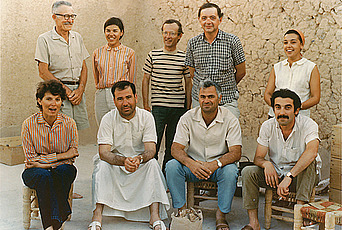Talking Points: Oleg Grabar on Muslim Legal Interpretation
From the very beginning of its existence, the Muslim world practiced and developed an elaborate legal system meant to control and to judge all aspects of life . . . This system, known as sharia, was based on the Qurʾān, an immutable divine revelation, and the hadith, a huge body of actions and statements attributed to the Prophet, whose authenticity— and reliability for believers—was discussed for centuries. . . . Although a consensus was established on many issues, and was often adopted by the legal systems of Muslim states in our times, this consensus was not total or universal. With variations that arouse the passions of modern historians and politicians, the opinions and judgments of this tradition of legal interpretation can, in theory at least, range from absolute and constant to near-anarchical and open-ended. ––Oleg Grabar, late Professor Emeritus in the School of Historical Studies, in “Seeing and Believing: The Image of the Prophet in Islam—the Real Story,” The New Republic, November 4, 2009


